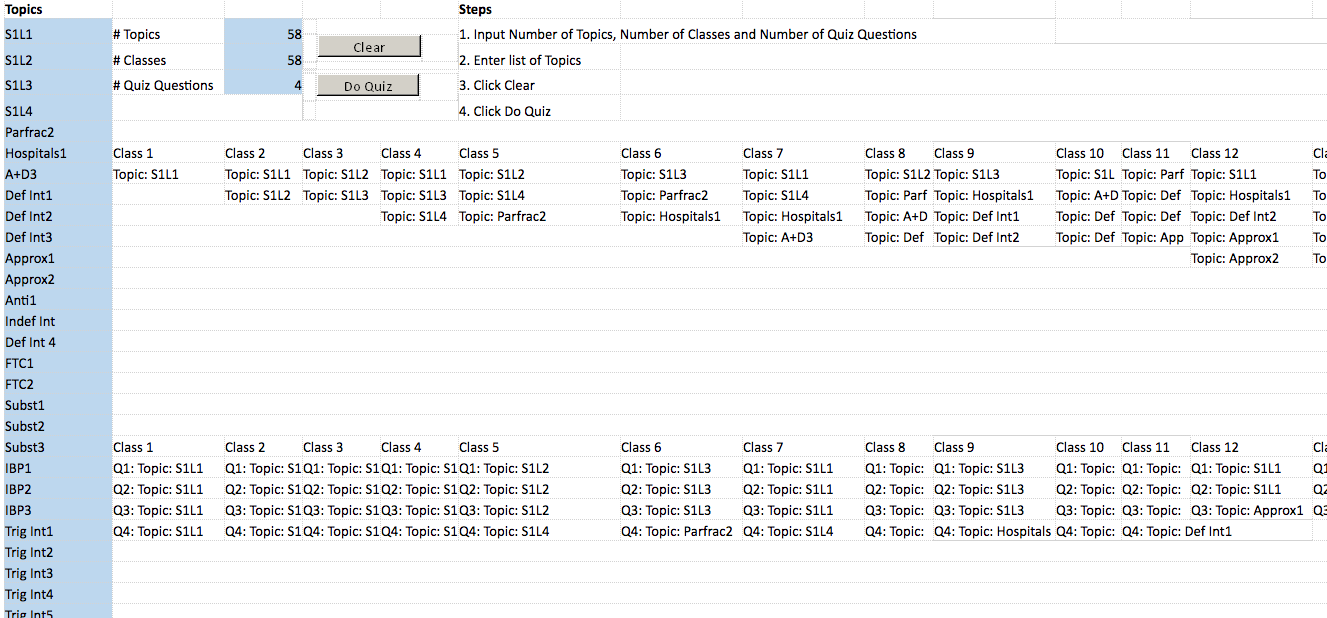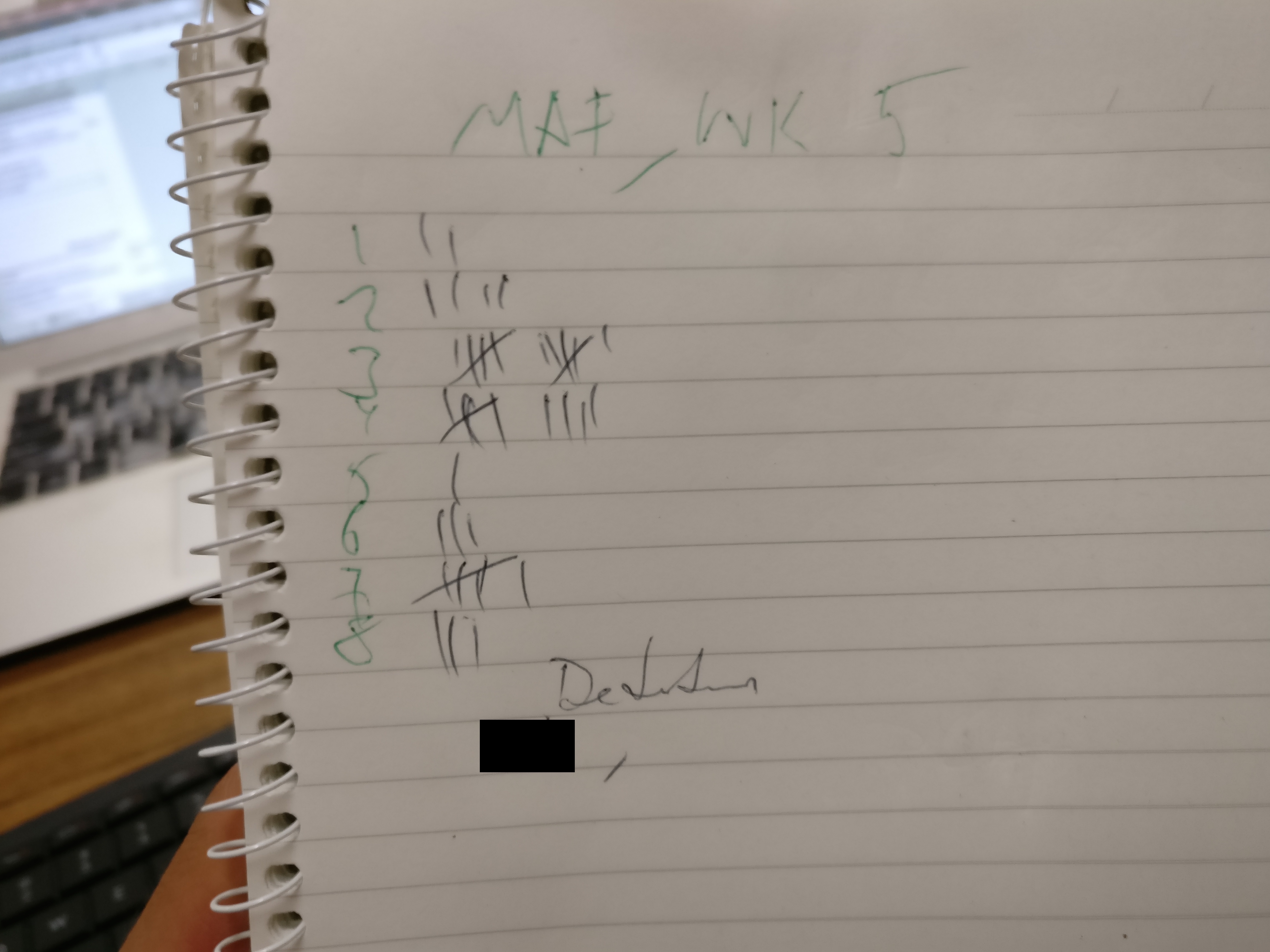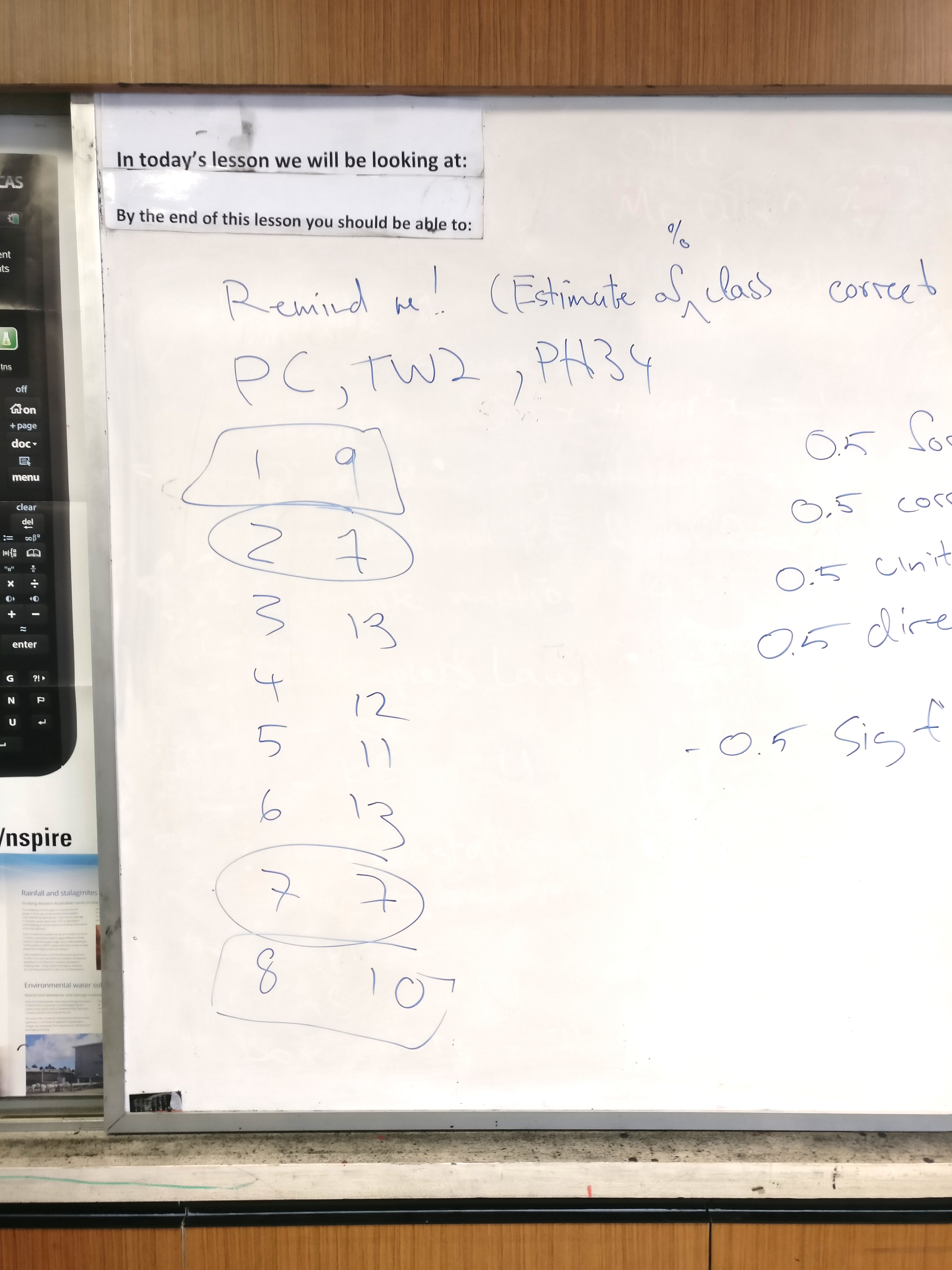To see how this practice fit into my broader instructional approach throughout 2017, see this post.
I've really enjoyed working my way through Brian Penfound's series of three (1, 2, 3) blogposts in his Journey to Interleaved Practice series recently. They detail how, prompted by a discussion with the Learning Scientists, Brian has been incorporating interleaving into his integral calculus class.
One particular instrument got me excited, it's an excel spreadsheet that can be used to interleave questions when you're planning both lessons and quizzes (see the blank version here (edit: Learning scientists just released a new version here) and Brian's version here). Here's a screenshot to give you a taster.
Being the focussed (and sometimes obsessed) learning strategist that I am, I really loved this idea. But it got me thinking, is this better than what I'm already doing? Should I adapt my current practice to incorporate this approach?
I've written about my assessment and feedback process before here , in which I talk about the weekly quizzes that I give students, and how they incorporate content from the previous three weeks. This means that students see content for a month in a row (in the teaching week, then in the three weeks after that), then they'll see it in the unit test (maximum 4 weeks later, as each topic is approx. 8 weeks long) then in the mid-year practice exam, then in the end of year exam.
I wanted to take the opportunity to share how I actually choose which questions to put on these weekly tests (or ‘Progress Checks' (PC) as they're called in my classes).
Each week I run the PC, students self mark in class immediately after, then I collect up the PCs. I keep them overnight and return them to students the next day (for two of my classes, the third class waits for 3 days due to timetabling) and in the meantime I enter the marks into my gradebook. When I return the PCs to students (I do this once they've settled into some question work), I carry around a little notebook and have a mini-conference with each student, the questions I ask are generally
“How do you feel you went?”
‘What did you get wrong?”
“What mistake did you make?”
“How much prep did you do for this Progress Check?”
And finally
“Which question numbers did you get wrong”.
From that, I collate the following.
(For any student who doesn't demonstrate that they prepared for the PC, they get a detention, which I also note on this sheet).
I then take a photo of this and store it with the progress check itself, like so.
Then, when it comes time to write the next week's PC, I feed in the questions that were answered incorrectly (variations thereof) as well as new content, in addition to other concepts from the previous 3 weeks that I think also important to touch on again.
I was really excited by the excel approach, but I'm still very attached to the adaptive approach that I'm using. Perhaps the optimum would lie somewhere in-between, using both a more-complex structure than ‘the last 3 weeks' (such as is offered by the excel spreadsheet), plus some element of adaptability to the questions and concepts that students are clearly struggling with.
An opportunity for further exploration!
Edit, December 17, 2017:
I was getting sick of how long it took to do this paper by paper analysis of the questions, and uptake by colleagues was being limited by this additional workload also (at least 4 mins per progress check.. every minute counts to a teacher!). So I've started doing it a different way and it's already been taken on by 2 other staff on account of how much easier it is. Now, just before the end of the progress check lesson, I write the question numbers up on the board and I just say, for example, ‘Raise your hand if you got question 1 conceptually correct*', then I mark the number of students and move on to the next question. This is much quicker, see the photo below. This also allows me to say ‘Look, we all struggled with questions 2 and 7 in particular, what do you think that means?' (they soon get that that's what'll be coming up next week).
*conceptually correct, rather than just ‘correct' because I don't want to carry forward a question into the next progress check just because someone forgot to round to the correct number of significant figures, I want to carry one forwards because students need to practice that concept. They'll have plenty of other opportunities to practice building their awareness of rounding through questions centred around other concepts.
To see how this practice fit into my broader instructional approach throughout 2017, see this post.




2 Replies to “How do we know what to put on the weekly quiz?”
Comments are closed.